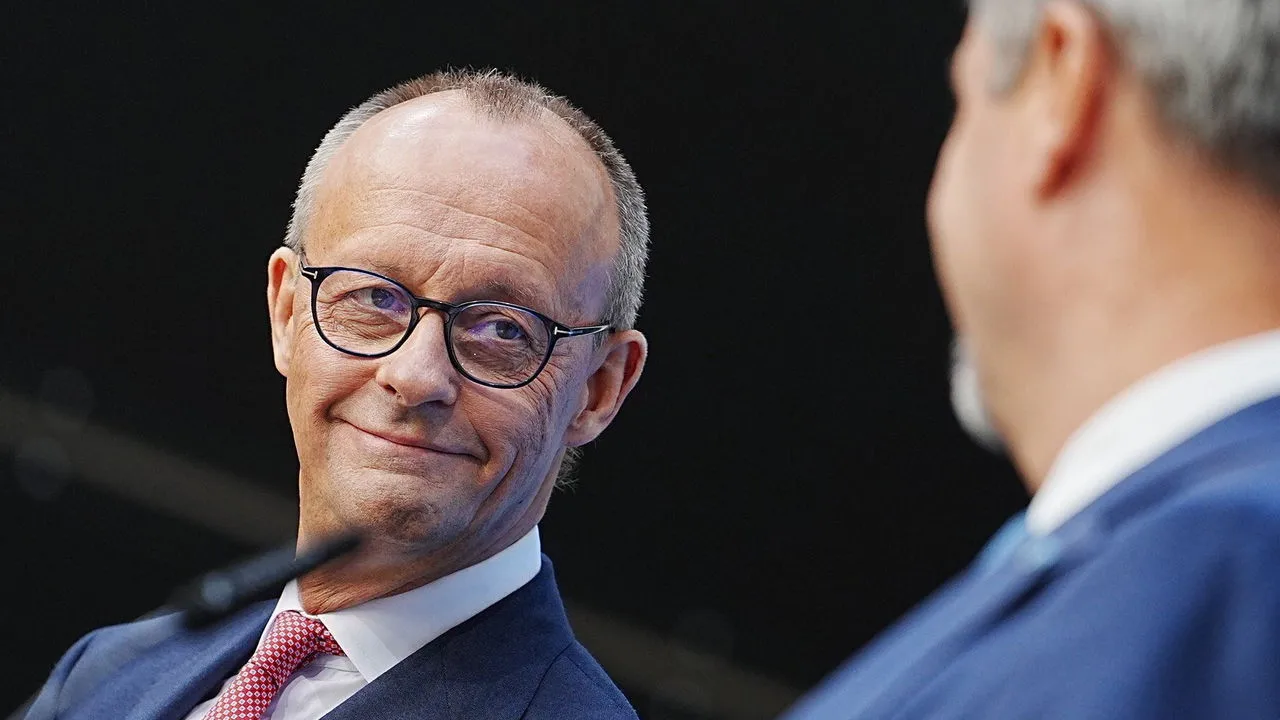In an outcome that shook the Bundestag, 69-year-old Merz triumphed in the second secret vote, securing 325 votes to 289, officially claiming the reins of Europe’s largest economy.
But victory came with a twist. His earlier loss — a historic first in post-war Germany — laid bare growing discontent within his coalition, signaling political turbulence ahead.
The German daily Bild summed up the complex aftermath with a headline reading, “The Happy End after the Betrayal,” a reflection of the emotional rollercoaster of the moment.
Merz now takes charge of a coalition that fuses his CDU/CSU alliance with the center-left Social Democrats (SPD), the very party of outgoing Chancellor Olaf Scholz, whose tenure has come to an end.
Swiftly following his appointment, President Frank-Walter Steinmeier confirmed Merz as Germany’s 10th chancellor since World War II. With the formalities behind him, Merz is already set for a whirlwind diplomatic tour, with stops in Paris and Warsaw lined up for Wednesday.
“With a slight delay, but all the more heartfelt, my congratulations on your election,” Steinmeier told Merz at the Bellevue Palace in Berlin. “I wish you every success in what lies ahead.”
Merz later said: “I accept this responsibility with humility but also with determination and confidence. It is good that Germany now has a federal government with a parliamentary majority again.
“We are a coalition from the centre of the political spectrum of our country and I am very confident that we will be able to solve the problems of our country.”
Merz’s bumpy victory caps a long ambition to lead Germany, which was first foiled decades ago by party rival Angela Merkel who went on to serve as chancellor for 16 years.
Nonetheless, his eventual triumph means that “the six-month power vacuum at the heart of Europe is over,” wrote analyst Holger Schmieding of Berenberg Bank.
Schmieding said that Merz’s initial setback “suggests that he cannot rely on full support from the two parties backing his coalition… That will sow some doubts about his ability to pursue the policy agenda.”
Read also: Germany Denies Allegation Of Aiding Genocide In Gaza At ICJ
“Despite today’s temporary upset,” Merz’s supporters mused, “he’s proven time and again that he can bounce back from setbacks.” They pointed to his long and grueling journey to the top of the CDU party—an ascent that took three attempts before he ultimately claimed the leadership.
For the far-right Alternative for Germany (AfD), however, the initial blow to Merz was cause for celebration. The party, which has long positioned itself against the established political order, hailed the first-round result as a triumph. AfD co-leader Alice Weidel called for Merz to step aside, suggesting the path be cleared for a general election. “It’s a good day for Germany,” she declared, viewing Merz’s stumble as an opportunity for a broader political shift.
Merz, however, remains steadfast in his plans. He has committed to a tough stance on irregular migration, hoping to curb the appeal of the AfD, which was officially classified as a “right-wing extremist” party by Germany’s domestic intelligence agency just last week.
What was initially expected to be a routine vote quickly turned into a political crisis for Merz. In the first secret ballot, he came up short by just six votes of securing the absolute majority needed to seal his position. The unexpected setback sent shockwaves through the German political landscape, sparking frantic crisis meetings within the Bundestag. There were growing fears that this setback could signal the start of a larger political upheaval.

